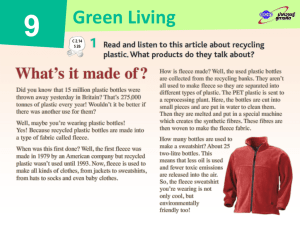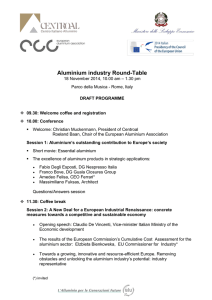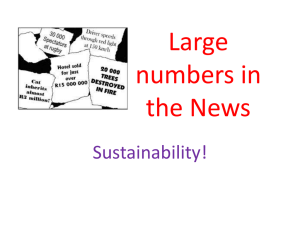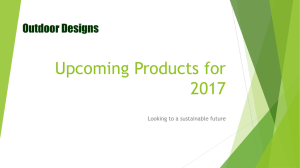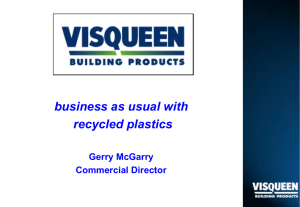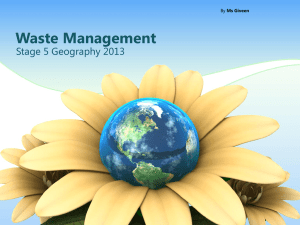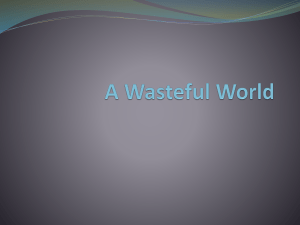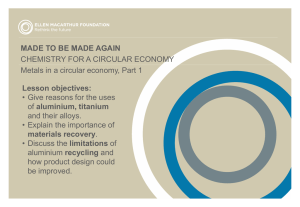Session 2 Speaker 2 Fran Leedham
advertisement
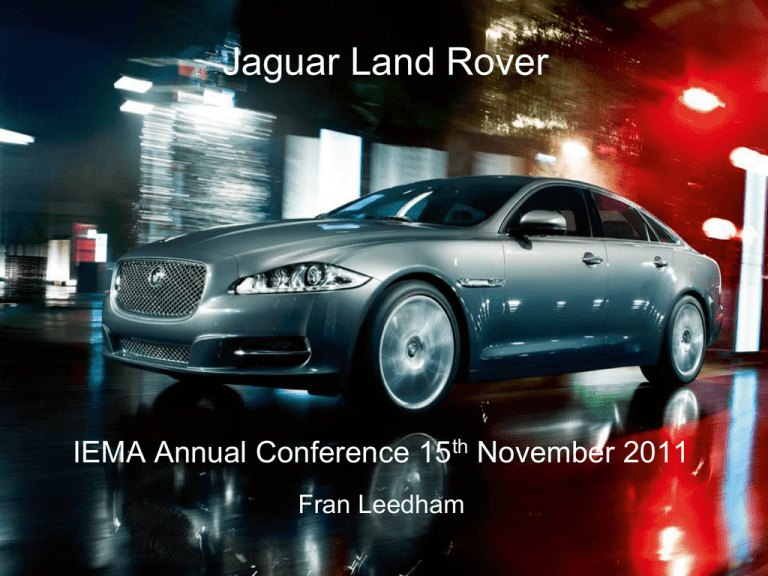
Jaguar Land Rover IEMA Annual Conference 15th November 2011 Fran Leedham Our Commitments: Environmental Innovation Strategy 25% increased use in sustainable materials Responsible Operations We are investing £9m in efficiency measures across the business, targeting areas where we can achieve most impact. Key CO2 Reduction Technologies: £800m investment over 5 years 2009 2010 2011 2012 2013 2014 Post -2014 Cycle plan focus on reducing product emissions/fuel economy EU CO2 Technology Roadmap http://ec.europa.eu/environment/co2/co2_home.htm Product lifecycle assessment Production, 14% Use, 85% Disposal, 1% Raw material Energy Production Waste Emissions to air and water Waste Energy Energy Use Disposal Emissions to air and water Waste Emissions to air and water JLR Resource Intensity: Aluminium Strategy Natural Resource Quantity Finished product Bauxite: 2,780 kg Aluminium: 527 kg Copper Ore: 17kg Copper: 9 kg Dolomite: 170 kg Magnesium: 11 kg Iron Ore: 600 kg Iron: 757 kg Rare Earth: 30 kg Lead, etc: 20 kg Zinc: 17kg Jaguar XJ Zinc alloys: 6 kg Estimated all JLR products raw metal resource usage would be around 600,000 tonnes per year REALCAR – Recycled Aluminium Car Jaguar Land Rover led research project Aim: To increase the recycled content of Five Thousand series from 50% to 75%; this saves 984 kg of CO2 per car (based on the new XJ) Recycled Aluminium Production 100% 100% Percent 80% 60% 40% 20% 5% 0% Energy required for recycled aluminium Energy required for primary production Source: International Aluminium Institute Tonnes of CO2e Value of light weight & recycled aluminium 45 Steel to Al: - 1.1 t 40 Diesel production GWP (kgCO2) Vehicle use CO2 (kgCO2) BIW Production GWP (kgCO2eq) Smaller PT: - 4.5 t 75% recycled: - 1.0 t 35 Total save: - 6.6 t 30 25 20 15 10 5 0 Steel Diesel Aluminium Al + PT Down size Life cycle Analysis results (over 200,000 km) 75% recycled Al REALCAR Project Scope Target up to 75% recycled Aluminium Closed loop manufacture Expand to supply base Review additional secondary metal supply Sources of recycled aluminium - 2009 = 40,500 tonnes UK aluminium cans wasted and land filled - 2009 = 189,000 tonnes total UK aluminium transport consumption Jaguar Land Rover is working with Alupro to improve this figure Al is cast into ingots, each large enough to make 1.5 m new cans Jaguar XJ Recycled Materials Range Rover Evoque Recycled Materials Upper canopy trim (Morzine) Trim fabric (Dinamica) Parcel tray 100% recycled PET 40% recycled PET 100% recycled substrate: Cardboard honeycomb filled with glass fibre and polypropylene = 2 kg weight save ELV Requirements: 85% recyclable Programme Targets Vehicle Pre treatment • Compliance with Vehicle End of Life Directive IMDS Parts marking • IDIS Dismantling Manual • Vehicle ‘CarTakeback’ Scheme Recyclable Powertrain Parts •All tyres removed •All fluids drained •Specific components with hazardous materials removed •Pyrotechnics Devices Deployed Recyclable Glass Parts Plastic Parts Interior and exterior recyclable parts Recycling: Good and Bad… • 12 million vehicles scrapped in Europe a year • Huaren Recycling is buying • • scrapped cars from Europe Objective 2million by 2012 Aluminium, steel, lithium, rare earths, lead, plastics, palladium Global Recycling Rates • Wasting 99% of rare earth elements • < 1/3 of 60 elements studied have recycling rate of over 50% • 34 elements are below 1% recycling rate. Consumer demand • Chinese market growth • 40% copper consumption • Rare earth monopoly • Cars use 60% world lead • Lead depleted by 2030 • Copper depleted by 2035 • Iron ore $130/tonne The Future? Innovation is Essential Jaguar C-X75 • New materials • Sustainable Design • Closed loop manufacture
